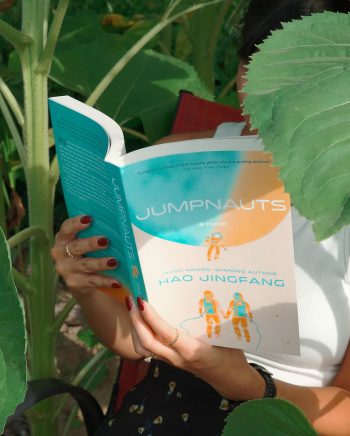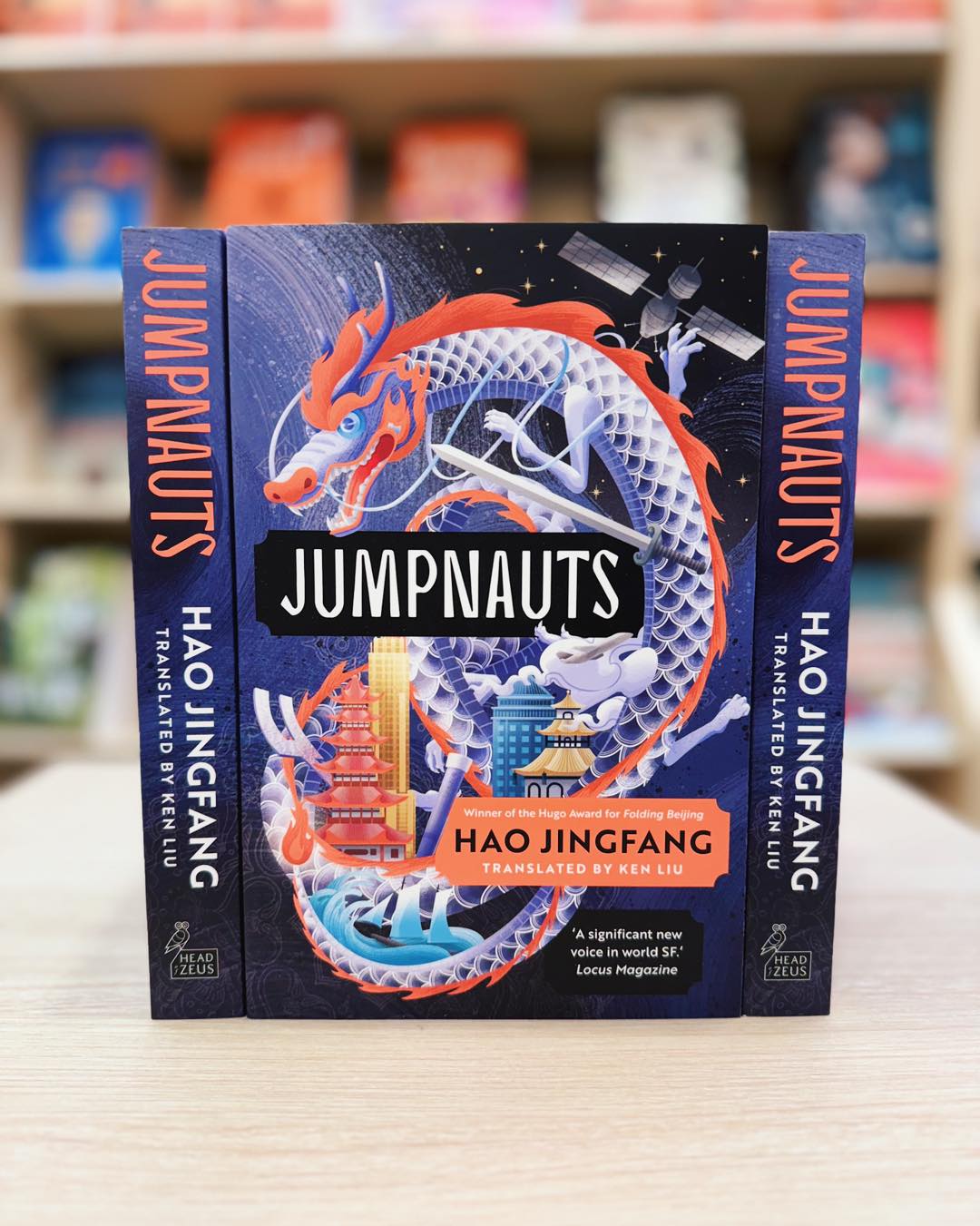How do you tell a story that spans millennia, explores human consciousness, critiques global power structures, and still manages to entertain with space travel and alien contact? In Jumpnauts, Hugo Award–winning Hao Jingfang takes on the challenge. This first-contact novel is ambitious, cerebral, and layered with Chinese philosophy, history, and science fiction spectacle. While it doesn’t always balance its parts perfectly, it’s undeniably compelling and a promising start to a new six-book saga.
ALSO SEE: Book Review: Anna O by Matthew Blake
Summary
In a near-future Earth divided by long-standing global tensions, the Pacific League of Nations and the Atlantic Division of Nations dominate geopolitics. The world is in a fragile Cold War state until signals from an intelligent alien species suggest that Earth has been observed for thousands of years.
Three unlikely allies, archaeologist Yun Fan, astronomer Jiang Liu, and military researcher Qi Fei, band together to pursue contact with this mysterious race. Each driven by curiosity, ideology, or caution, the trio ventures into space, racing against political factions who would rather respond with weapons than words. Their journey involves decoding ancient puzzles, confronting conflicting belief systems, and ultimately asking: What does it mean to be human in the face of the unknown?

Instagram | @vanreads
The review
A science fiction novel steeped in philosophy
Unlike most action-heavy first-contact stories, Jumpnauts is deeply philosophical. Much of the tension comes not from space battles or alien threats but from intellectual debates between its characters. Qi Fei represents a militarised, sceptical worldview (inspired by Liu Cixin’s “dark forest” hypothesis), while Jiang Liu leans toward idealistic Mohist values—mutual respect, pacifism, and selflessness.
Hao Jingfang uses these ideological contrasts to explore deeper questions about power, morality, and what humanity might project onto alien intelligence. At times, these philosophical dialogues can feel dense or even didactic, but they’re thought-provoking, especially for readers with a background or interest in Chinese philosophy.
A futuristic world with ancient roots
One of the novel’s greatest strengths is its fusion of science fiction with Chinese antiquity. Hao blends quantum theory, AI, and blockchain with Confucianism, Daoism, and Mosim. The result is a narrative that feels both futuristic and ancient, grounded in cultural thought systems rarely explored in Western sci-fi. Yun Fan’s belief that alien contact is embedded in the evolution of Chinese civilisation adds a unique mythological flair that enriches the story’s stakes.
Ken Liu’s translation is masterful in maintaining clarity while tackling the philosophical weight and complexity of the original text. However, some reviewers note that the poetic, classical tone of Hao’s Mandarin is inevitably muted in translation.

Instagram | @elena.luo
World-building and pacing: a slow burn
Jumpnauts is not a book that rushes. Much of the first half is spent building the socio-political world and philosophical frameworks, useful for what will eventually be a six-book series, but potentially frustrating for those expecting a self-contained thriller.
The payoff begins in the second half as the characters leave Earth and embark on their mission. While the climax delivers, the ending feels slightly rushed, perhaps because it’s designed to set up sequels more than to resolve the current narrative.
Characters: more archetype than arc
Western readers may find the protagonists underdeveloped by familiar standards. The three main characters are accomplished and competent to an almost fantastical degree, with little of the emotional growth or internal conflict common in Western narratives. Some of this may stem from Hao’s background in web fiction or from differing storytelling traditions, but it can create distance between the characters and the reader.
Still, their interactions, especially the intellectual rivalry between Qi Fei and Jiang Liu, are where the novel shines. Romance is refreshingly absent. Instead, the story is about a “meeting of minds,” as the characters wrestle with conflicting worldviews while working toward a common, existential goal.
Final thoughts
Jumpnauts isn’t a conventional sci-fi thriller. It’s a reflective, often cerebral novel that dares to slow down and ask big questions. While its pacing and character development may not suit every reader, those willing to engage with its ideas will find a richly layered narrative that fuses science, philosophy, and speculative wonder.
If you’re drawn to The Three-Body Problem, Ursula K. Le Guin’s philosophical explorations, or the more utopian episodes of Star Trek: The Next Generation, this is one to read—and to watch as the series unfolds.
ALSO SEE:
Featured Image: Instagram | @dymocks_hobart

